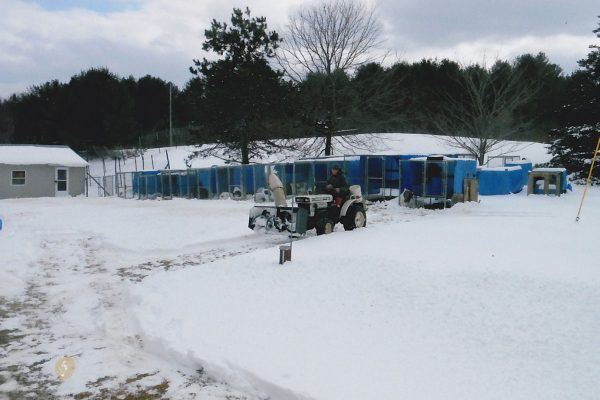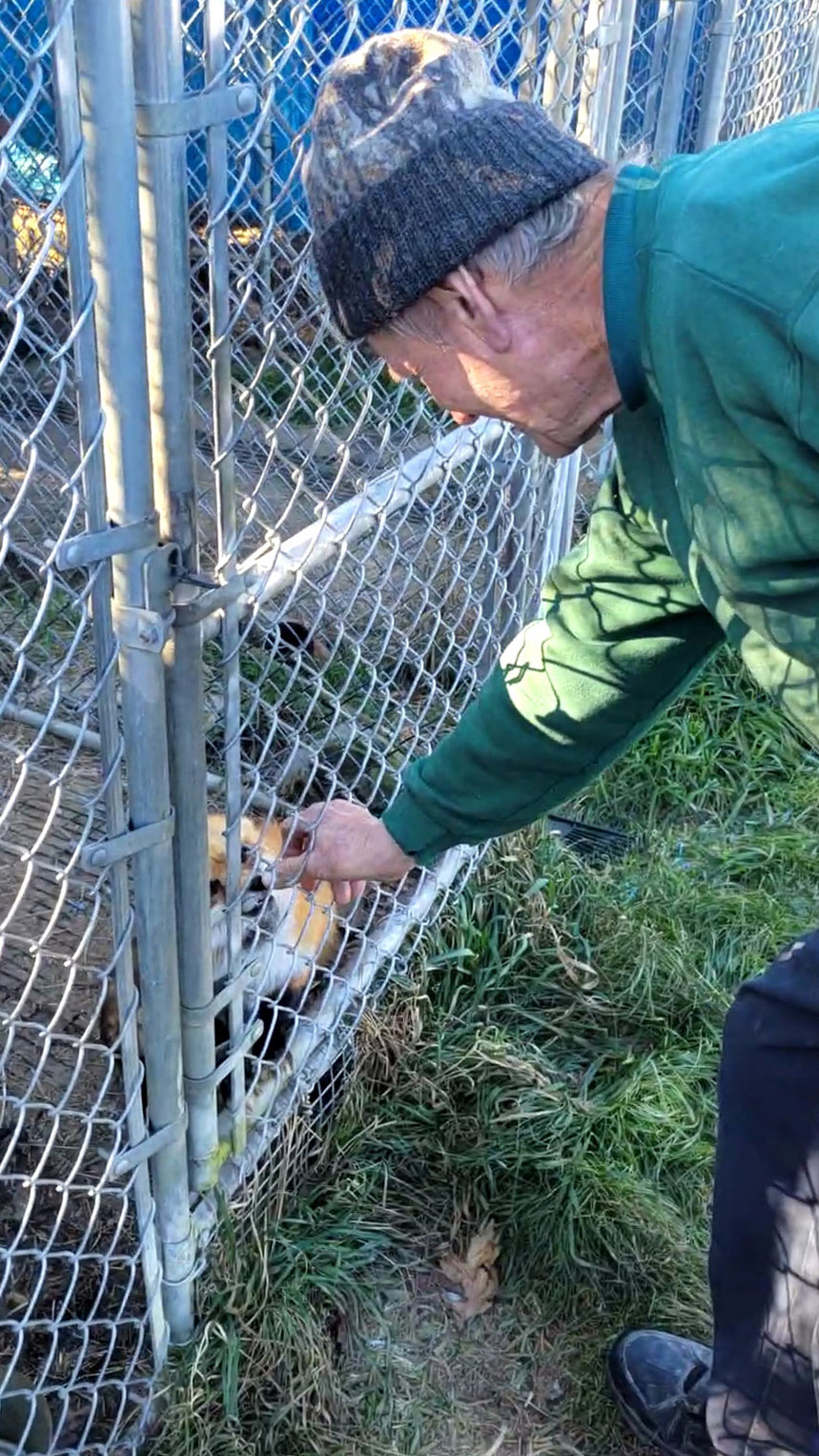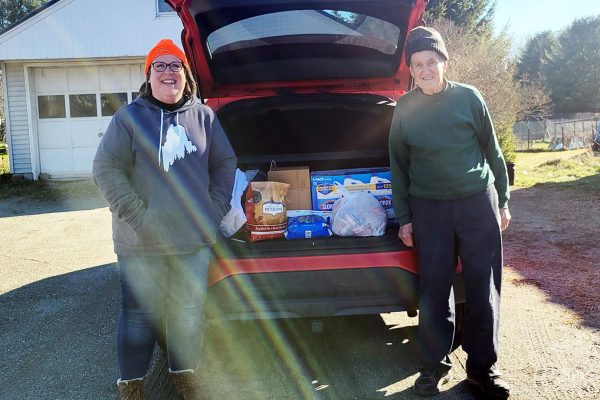As most of our readers are excitedly anticipating the holidays and time off from work and school, daily chores at Duck Pond Wildlife Rehab continue, no matter the weather, dropping temperatures or reduced daylight. Carleen described preparation for winter in portions of earlier columns:

Winter chores at Wildlife Care Center. (Photo courtesy of Don Cote)
From 2008: “The babies that arrived in the spring and summer had been released. There was much to do before the first snowstorm. All the dishes, cages, empty pens, and dog houses that had been used to shelter the animals now needed to be cleaned, repaired, and painted. The power washer is a tremendous help in cleaning the dog houses. Dirt and mud just melt away, and soon they are clean and white, ready to be stored for the winter. Nothing is put away dirty. Empty pens also need to be thoroughly cleaned and repairs made. The mobile pens are moved to one area where they will be covered with tarps to protect them from the snow and ice.
The young deer need to be moved to their winter pen. Barriers are set up to walk them from one pen to the next. The concern is that they not get spooked, jump over the barrier, and run off, probably never to be caught and too young to be on their own in the wild. The geese and ducks need to be rounded up off the ponds. This can be a challenge as they always want to go in the wrong direction.”
From 2009: “After the animals ready for release are gone, reality sets in again. Pens need to have tarps replaced as the raccoons really enjoy shredding them. Buildings and shelters in need of paint will be spiffed up.
Living in Maine, the inevitable happens – the first snowfall. We sit in the warm house, watching the accumulation, knowing that we will soon be laboring to remove the snow from the pens that hold the young wildlife that were not big or fat enough to be released in the fall. Pens will need to be shoveled, along with plowing and using the snow blower to clear paths to all the enclosures. Along with the snow comes freezing temperatures. Ice will be pounded from every water container, fresh water provided only to refreeze almost instantly. Whatever hasn’t frozen to the bottom of the pen (food and other debris) will be raked up, carried away and disposed of. Everyone needs to be fed – hay carried to the deer pen and grain to where the birds are housed.

Don greets one of his foxes, Suzy, while showing Beth Comeau around the Center
The howling winds, bitter cold and blowing snow do not end calls about wildlife in need. Homeowners want unwelcome skunks removed from under their houses. Raccoons, deer, and other animals that are victims of vehicle hits will need to be picked up and taken to the vet to determine if injuries are life threatening. If not, they will recover at the Care Center until spring release. The work really never ends, it just slows down for a few months. In spite of all the work and heartache over animals we are unable to save, we always look forward to the first spring baby!”
During this season of thanks and gratitude, we want to recognize staff at the Natural Resources Council of Maine in Augusta for their recent collection and delivery of donations to the Wildlife Care Center. Items included cash, cat and dog food, towels, frozen berries, and bleach. A special thank you to NRCM Communications Manager Beth Comeau for organizing this thoughtful show of support.
The Wildlife Care Center greatly appreciates the continuing assistance from other rehabbers to help while Don deals with health issues. We ask that you check these websites to see if there is a rehabber closer to you to help make critter care at Duck Pond more manageable: www.mainevetmed.org/wildlife-rehabilitation or www.maine.gov/ifw/fish-wildlife/wildlife/living-with-wildlife/orphaned-injured-wildlife/rehabilitation.html – Donald Cote operates Duck Pond Wildlife Care Center on Rte. 3 in Vassalboro. It is a nonprofit State-permitted rehab facility supported by his own resources & outside donations. Mailing address: 1787 North Belfast Ave., Vassalboro, ME 04989 Phone: (207) 445-4326. email: thewildlifecarecenter@gmail.com
—by Jayne Winters, Natural Resources Council of Maine member from South China, Maine
Critter Chatter also appears monthly in the Town Line newspaper.
Banner photo: Suzy the fox, who lives at the Wildlife Care Center (photo by B.Comeau/NRCM)

NRCM Communications Manager Beth Comeau presents Don Cote with donations from NRCM staff, 2021.











Leave a Reply